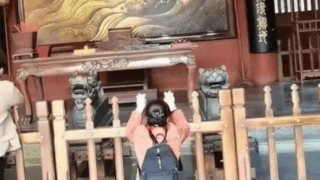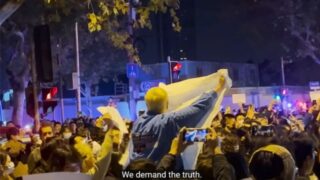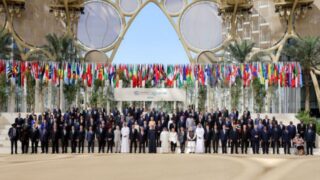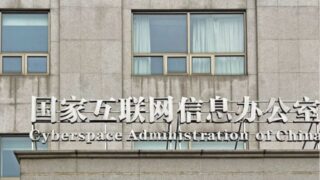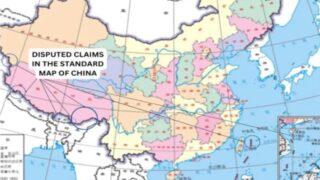Across China, some bestsellers are removed from shelves as part of the campaign against pornography and illegal publications, replaced with books praising the CCP.
by Ye Ling
In October last year, China’s Ministry of Education demanded to purge “illegal” and “inappropriate” books from primary and middle school libraries across the country that had been deemed “bad” for children amid the nationwide campaign to “eliminate pornography and illegal publications.”
According to a report by China’s official news agency Xinhua, on July 16, the national office for “eliminating pornography and illegal publications” notified about the special campaign to “protect juveniles in 2020.” It states that over 132,000 illegal and harmful children’s books have been seized across the country during the first half of this year.
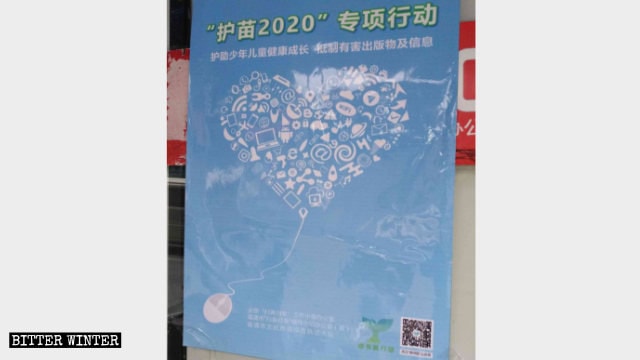

Amid this campaign, numerous books loved by Chinese children were listed as “illegal and harmful publications” and were removed from shelves. Among them was Daddy in the Pocket, a series of fairytales by Yang Peng, a famous writer and first from China to get a writer’s contract with Disney. Over seven million copies of this book in Chinese have been sold in more than ten years.
A primary school teacher from Fuqing city in the southeastern province of Fujian forwarded to Bitter Winter an urgent notice issued by the Education Bureau that sheds some light on the reasons behind these purges. The Bureau claims that Daddy in the Pocket and other books, like Naughty Boy Ma Xiaotiao, written by Yang Hongying, another famous author for children, form an “improper outlook on life, values, and the world” and contain inappropriate content of “detailed descriptions inducing minors to commit suicide.”
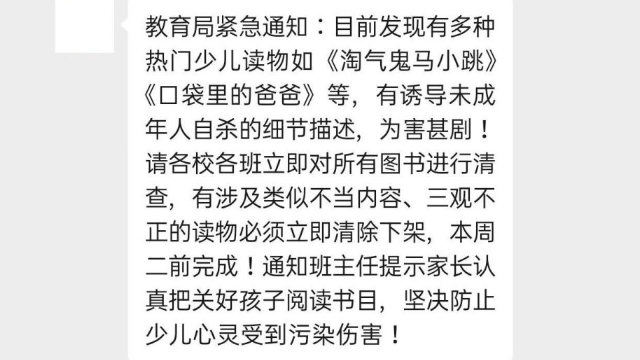

Mi Xiaoquan’s School Experience, a set of stories in the Mi Xiaoquan series based on the diaries of a primary school student, is banned because the protagonist “gives nicknames to his classmates and has lots of bad habits.” Even though, the set was selected by the National Administration of Press and Publication in China in 2018 as one of the hundred outstanding readings recommended to young people.
According to reports by media outlets in mainland China, some parents believe that this book is rather humorous and interesting, and their children like it very much. The parents did not find any apparent harmful content when they read the books with their children.
Two other children’s books were also banned and removed from shelves in some places for containing “pornography and violence.” These are Bronze And Sunflower, a novel by Cao Wenxuan, the first Chinese author to receive the Hans Christian Andersen Award in 2016, and The Wolf King’s Dream, a book by Shen Shixi that won the 4th Yang Huan Children’s Literature Award in Taiwan.


An Wulin, a critic and children’s literature writer, believes that it’s irresponsible to dismiss a book based on one or two details. He thinks that if the same criteria are applied, the Four Classic Novels of Chinese literature—Dream of the Red Chamber, Romance of the Three Kingdoms, Water Margin, and Journey to the West—and fairytales by the Brothers Grimm and Hans Christian Andersen should also be removed from shelves.
A teacher from Fuqing city told Bitter Winter that the CCP claims that such bans on books are intended to “protect children’s minds from pollution and harm and help them form an appropriate outlook on life, values, and the world.” The teacher thinks that these restrictions prevent children from making free choices on what to read and throttle the development of their autonomy. “The correct way to cultivate children’s attitudes is not through harsh restrictions,” the teacher believes. “It’s best to guide them to distinguish right and wrong, positive and negative, black and white, and have a proper attitude toward what they read. The CCP chose this way to deceive people. It aims to cultivate the next generation into people who follow and respect the Party as the greatest, without their own pursuit or belief.”
While banning and purging children’s bestsellers, Fuqing city’s Education Bureau launched an essay writing activity titled “Reading a good book during summer holidays.” The Bureau provides a list of recommended “good books,” in which Transparent Hugs, a collection of children’s poems about “defeating the epidemic” is number one for grades 1 and 2 in primary schools. The preface to the poems reads that they are “full of confidence and determination to win the battle against the epidemic” and represent “the tenacity of the national character.” One of the poems, A Name Not to Be Insulted, attacks the article China Is the Real Sick Man of Asia, published in The Wall Street Journal on February 3, stating that the media outlet’s “conscience has been broken.”
“By advertising ‘the great power that defeated the epidemic,’ they want to teach students how to sacrifice themselves for the Party,” commented a parent from Fuqing who disagrees with such educational policies.
Another parent expressed her worries that after being indoctrinated with such content for a long time, children would form a twisted outlook that those who criticize China and the Communist Party are all enemies and become hostile toward them.


